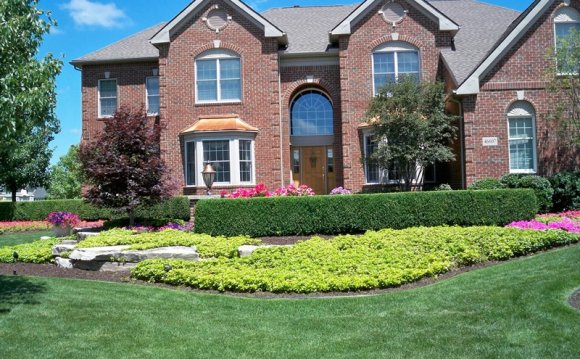
Sustainability is at the core of the University of Michigan’s Landscape Architecture program. Embedded within the interdisciplinary School of Natural Resources and Environment, this field of study offers the ideal context for training change-driven leaders in ecological design.
Here, you will learn to employ ecological principles authentically in environmentally responsible design—from the center of redeveloping cities to changing rural landscapes. Aesthetic theory, cultural engagement, ecological function, technical skill, and environmental justice all figure prominently in the program, which dynamically evolves in response to new knowledge in the environmental sciences.
Graduates of the Landscape Architecture program are known for their ability to synthesize information about ecological processes and systems, human behavior, cultural/political institutions, and urban patterns to create sustainable landscapes that work aesthetically, ecologically, socially, technically, and economically.
“The Landscape Architecture field of study allows me to explore many different disciplines: design, art, horticulture, urban planning, engineering, policy, and sustainability. SNRE is unique for its dynamic, interdisciplinary atmosphere in which I am surrounded by colleagues with very different expertise from my own.”
—Megan Barnes, Landscape Architecture student track leader
CURRICULUM
Our three-year accredited MLA program prepares students from a wide variety of undergraduate backgrounds for careers in landscape architecture. A two-year MLA option is available for those that already have an accredited degree in landscape architecture or a closely related field, and we also offer a Ph.D. in Landscape Architecture, the oldest Landscape Architectural doctoral degree in the country.
Studio experience is at the heart of the three-year curriculum. At SNRE, studio content and pedagogy teach you to imagine and construct landscapes that not only support, inspire, and respond to myriad human needs, but that also respect and protect community traditions and irreplaceable natural systems and resources.
Course Sampling
- Place and Environment
- Visualization and Representation
- Principles of Ecological Design I & II
- Ecological Site Planning
- Metropolitan Dynamics Studio
- Materials and Methods
- Land Use and Global Change
- Ecological Restoration
- Mediation Skills
CAREERS AND SELECT EMPLOYERS
Graduates of SNRE’s MLA program are prepared to practice ecological design and landscape planning in all contexts, brownfield redevelopment, historic preservation, and land conservancy. Our alumni are employed by private firms, multidisciplinary firms and consortiums, government agencies at the local, state, regional and national levels, and nongovernmental organizations both domestic and international; many also launch their own practices after achieving licensure. The following are select employers of Landscape Architecture graduates:

Public Information Policy
Programs accredited by the Landscape Architectural Accreditation Board (LAAB) are required to provide reliable information to the public. In addition these programs must report on accreditation status and its performance. This information is to help potential students make informed application decisions.
YOU MIGHT ALSO LIKE












